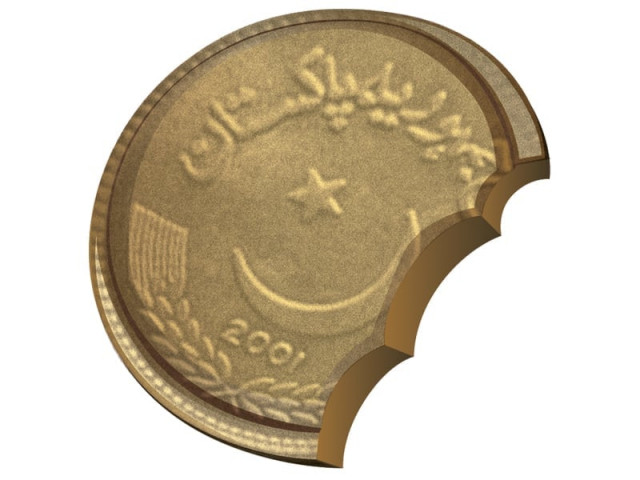Public Sector Development Programme: The cook eats a quarter of the pie
For every Rs100 spent on a development project, Rs22 is used for perks, salaries and ‘other’ expenses.

Out of every Rs100 spent in the name of development in Pakistan, about Rs22 is used for payment of salaries, purchasing cars and miscellaneous and contingent expenses related to the project, reveals a latest review of the Public Sector Development Programme (PSDP).
The Planning Commission (PC) on Tuesday launched its first-ever analytical review of the PSDP portfolio that currently stands at Rs4,108 billion.
The review discloses that the delivery cost of Rs4,108 billion worth of projects is Rs890 billion or 21.6% of the portfolio.
The biggest chunk, Rs582.5 billion, of the cost goes to contingent and miscellaneous expenditures, according to the review. The second biggest head is salaries of employees that amounts to Rs268 billion or 6.5% of the total portfolio. An official of the PC said that many projects are initiated and continued for years just to ‘accommodate cronies who get hefty salaries and cars’.
Utilities cost Rs22 billion while another Rs17.5 billion is spent on purchasing cars for these projects. It is not surprising to find project officials, entitled to just a single vehicle, use several, including luxury cars.
What goes where?
Of the PSDP allocation, Rs2,350 billion or 58% of the total project portfolio, is allocated for civil works, Rs558 billion or 14% has been earmarked for purchase of machinery and Rs220 billion or 5.4% for land purchase and resettlement.
Of the funds set aside for civil works, Rs591 billion has been allocated for energy and power projects, Rs471 billion for motorways and roads, Rs442 billion for dams, canals and barrages, Rs20 billion for rails and ports, Rs365 billion for housing and works (buildings) and Rs462 billion for ‘other civil expenses’.
Incentivising development, not delivery
“The delivery of PSDP suffers from difficulties like inadequacies of fiscal policies and weak planning process,” said Planning Commission Deputy Chairman Dr Nadeemul Haque.
The PSDP incentivises project development but not public service delivery or productivity and no attempt is made to deliver real benefits to the people, said Dr Haque.
“Since outcomes are not monitored and because of the continuous pressure to initiate projects, several weaknesses remain in project development and execution,” he said.
Challenges
The analytic review also highlights issues being faced by the authorities, including the impact of the 18th amendment and the 7th NFC Award on federal development portfolio, the problem of arranging funds for incomplete projects.
The report says that approving bodies have been continuously clearing new projects without considering their fiscal implications.
Recommendations
The study proposes that fewer projects should be approved and recommends an embargo on approval of projects except those considered critical and those involving international financial assistance.
The review also suggests deferring unfunded projects until the government’s financial situation improves, and more importantly, not funding provincial projects should from the federal PSDP.
The review also recommends transferring potential projects to private sector.
Published in The Express Tribune, July 20th, 2011.



















COMMENTS
Comments are moderated and generally will be posted if they are on-topic and not abusive.
For more information, please see our Comments FAQ